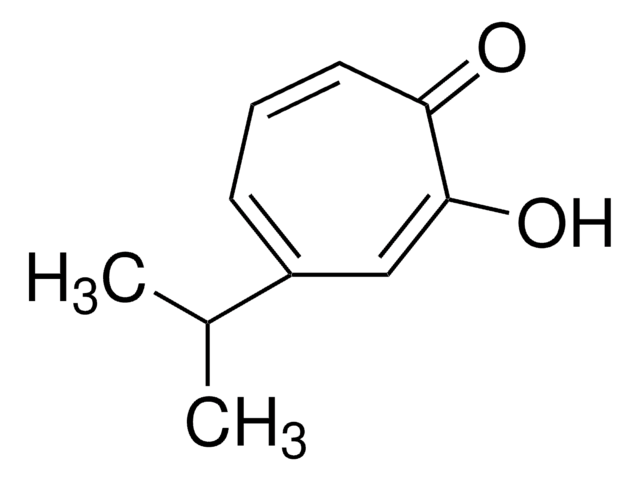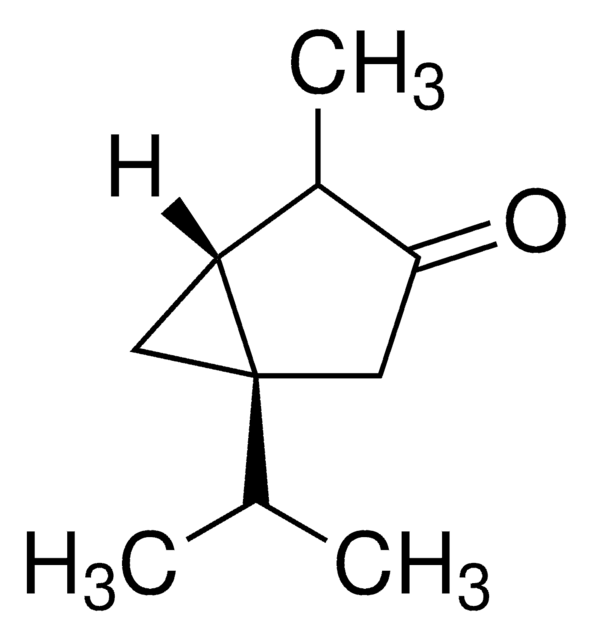79851
Kaempferol 3-β-D-glucopyranoside
≥97.0% (HPLC)
Synonyme(s) :
3,4′,5,7-Tetrahydroxyflavone 3-glucoside, 3-(β-D-Glucopyranosyloxy)-5,7-dihydroxy-2-(4-methoxyphenyl)-4H-1-benzopyran-4-one, 3-Glucosylkaempferol, Astragalin, Kaempferol 3-glucoside
About This Item
Produits recommandés
Niveau de qualité
Pureté
≥97.0% (HPLC)
Forme
crystals
Température de stockage
2-8°C
Chaîne SMILES
OC[C@H]1O[C@@H](OC2=C(Oc3cc(O)cc(O)c3C2=O)c4ccc(O)cc4)[C@H](O)[C@@H](O)[C@@H]1O
InChI
1S/C21H20O11/c22-7-13-15(26)17(28)18(29)21(31-13)32-20-16(27)14-11(25)5-10(24)6-12(14)30-19(20)8-1-3-9(23)4-2-8/h1-6,13,15,17-18,21-26,28-29H,7H2/t13-,15-,17+,18-,21+/m1/s1
Clé InChI
JPUKWEQWGBDDQB-QSOFNFLRSA-N
Vous recherchez des produits similaires ? Visite Guide de comparaison des produits
Catégories apparentées
Application
- Role in Ubiquinone Biosynthesis: The compound contributed to the biosynthesis of the benzenoid moiety of ubiquinone, a key component in plant biochemistry, highlighting its essential role in cellular energy production and plant health (Soubeyrand et al., 2018).
Actions biochimiques/physiologiques
Conditionnement
Code de la classe de stockage
11 - Combustible Solids
Classe de danger pour l'eau (WGK)
WGK 3
Point d'éclair (°F)
Not applicable
Point d'éclair (°C)
Not applicable
Équipement de protection individuelle
Eyeshields, Gloves, type N95 (US)
Certificats d'analyse (COA)
Recherchez un Certificats d'analyse (COA) en saisissant le numéro de lot du produit. Les numéros de lot figurent sur l'étiquette du produit après les mots "Lot" ou "Batch".
Déjà en possession de ce produit ?
Retrouvez la documentation relative aux produits que vous avez récemment achetés dans la Bibliothèque de documents.
Les clients ont également consulté
Notre équipe de scientifiques dispose d'une expérience dans tous les secteurs de la recherche, notamment en sciences de la vie, science des matériaux, synthèse chimique, chromatographie, analyse et dans de nombreux autres domaines..
Contacter notre Service technique











